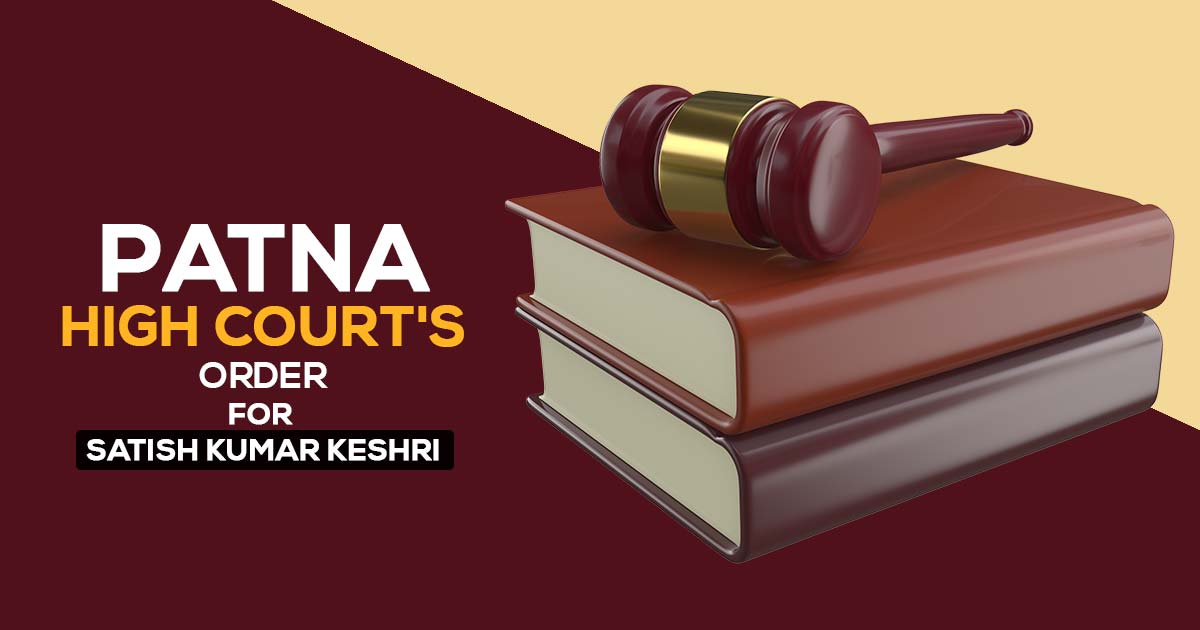
At the time of furnishing the essential clarifications for the assessments that are conducted under the Income Tax Act 1961, the Patna High Court said that these assessments should not be arbitrary and must laid on the material proof found at the time of investigation.
The division bench of Chief Justice K Vinod Chandran and Justice Partha Sarthy ruled that “Hence, the assessment referred to in Section 153A enables the Assessing Officer to proceed for assessment, when any such assessment for the previous six years is pending, treating the proceedings to have abated. In so proceeding with the assessment, the Assessing Officer would be entitled to reckon both disclosed and undisclosed income of the assessee.”
“Insofar as completed assessment, they do not abate and for the purpose of re-assessing, there should be some incriminating material disclosed in the search, which alone can lead to re-opening of the proceedings on the basis of the seized material, which has some relevance or nexus to the allegation of undisclosed income.
The assessee’s assessment for the relevant year stood completed on 06.06.2003 long before the search and consequent proceeding initiated under Section 153A and there is no question arising of the relevant assessment to abate under the second proviso to Section 153A.”
The same case has been started from the petition against the decision of the income tax Appellate Tribunal on 04.07.2017, concerned with the AY 2002-03. The central legal question posed was that if the decision of the ITAT to show the assessment conducted under Section 153A of the Income Tax Act, 1961, after the investigation and search, as invalid acknowledging that no assessment proceedings were due during Section 153A proceedings were started, was justified.
To furnish the context, in the AY 2002-03, the initial assessment of the assessee was completed under Section 143(3) of the Act on 06.06.2003. Later, the same assessment was set aside by the 1st Appellate Authority under Section 263 of the Act via an order on 24.11.2004. The case gets remanded back by the 1st Appellate Authority to the Assessing Officer for a fresh assessment. A search operation was conducted dated 15.12.2004, at the taxpayer’s premises under I-T Section 132(1) of the Act, directing to the initiation of Section 153A proceedings.
The taxpayer argued with the Assessing Officer that there were no pending assessments when the search occurred or when Section 153A proceedings were initiated. This argument was made to contest the Assessing Officer’s basis for conducting an assessment using the original records, disclosed income, or any findings from the search.
However, the Assessing Officer disregarded the taxpayer’s argument, mainly because of a remand order issued by the Commissioner of Income Tax. This remanded assessment, which was still pending, was treated as if it had been canceled, and subsequently, an assessment order was issued under Section 153A, read with Section 143(3) of the Act, on December 29, 2006.
Meanwhile, the taxpayer challenged the decision of the 1st Appellate Authority regarding the remand order before the Tribunal. The Tribunal reversed the 1st Appellate Authority’s decision and reinstated the original assessment order dated June 6, 2003. This reversal occurred even before the assessment order was issued under Section 153A and Section 143(3) of the Act.
The taxpayer then contested the assessment order issued under Section 153A and Section 143(3) of the Act before the 1st Appellate Authority but did not succeed in their challenge. However, the Tribunal later reversed the decisions made by both the 1st Appellate Authority and the Assessing Officer. The Tribunal’s conclusion was that the assessment had effectively concluded at the time when the Section 153A proceedings were initiated, and as a result, there were no ongoing assessment proceedings at that time.
The court based its decision on the principles outlined in the case of Commissioner of Income Tax v. Kabul Chawla; [2016] 380 ITR 573 (Delhi), which summarizes the guidelines for assessment and reassessment under Section 153A, a ruling that had been affirmed by the Supreme Court.
The court determined that the Tribunal had acted in accordance with the statutory framework by instructing the Assessing Officer to conduct a reassessment of the assessment year 2002-03, which had already been completed at the initiation of the Section 153A proceedings, provided that incriminating material seized during the search was available.
“We bow to the proposition as declared by the High Court of Delhi and affirmed by the Hon’ble Supreme Court of India and answer the question framed in favour of the assessee and against the Revenue,” the Court concluded while dismissing the appeal which the revenue filed.
| Case Title | Assistant Commissioner of Income Tax Vs. Satish Kumar Keshri |
| Miscellaneous Appeal | No.823 of 2017 |
| Date | 21-07-2023 |
| Counsel For Appellant | Mrs Archana Sinha @ Archana Shahi, Advocate |
| Counsel For Respondent | Mr. A.K.Rastogi, Sr. Advocate Mr.Parijat Saurav, Advocate Ms. Smriti Singh, Advocate |
| Patna High Court | Read Order |